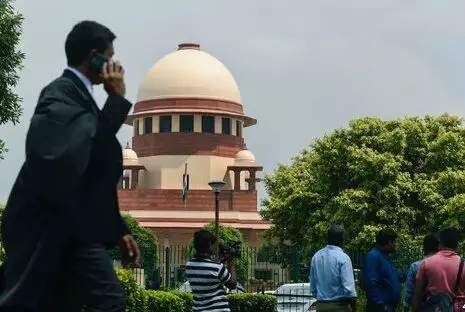
A lawyer cannot be sued for providing faulty ‘service’: Supreme Court
text_fieldsNew Delhi: The Supreme Court on Tuesday ruled that clients cannot take legal action against their lawyers over claims they did not provide proper “service” as per the Consumer Protection Act, The Indian Express reported.
Justices Bela M Trivedi and Pankaj Mithal held that success of “professionals” often rests on factors outside their control, adding that lawyer’s services must be treated differently from any other business or trade.
The court judgment follows an appeal against the 2007 National Consumer Disputes Redressal Commission’s (NCDRC) decision.
The NCDRC decision made lawyers’ services fall under the definition provided for the term under Section 2(o) of the Consumer Protection Act, 1986 (CPA).
Based on this, the NCDRC held that if any deficiency in service, a complaint could be filed under the CPA.
When petitioner advocate M Mathias moved against it, the Bar Council of India, the Delhi High Court Bar Association, and the Bar of Indian Lawyers also argued against applying the CPA to the legal profession.
They sought to treat legal profession differently from other business or trades, claiming that they occupy a unique space.
The petitioners pointed out that lawyers cannot act as a ‘mouthpiece’ for their client nevertheless they are being paid, adding that lawyers have duties to the court and their opponent as per the Bar Council of India Rules, 1961.
These obligations are likely to conflict with the duty towards the client, the report said.
It was also argued that lawyers have no control over the outcome of a case given the complexity of legal issues involving intricate statues and case laws.
Unlike in medical profession where a universal standard of care can be applied, in legal profession no such standard is possible as each lawyer applies their own style.
The adversarial nature of legal proceedings adds to the unpredictability as the outcome also depends on the strategies of the opposing side.
The petitioners pointed out the existing remedies for professional misconduct in the Advocates Act, 1961 and the disciplinary powers granted to the Bar Councils by the Advocates Act.
The petitioners argued that the Advocates Act could be applied to the conduct of advocates as opposed to the CPA.











